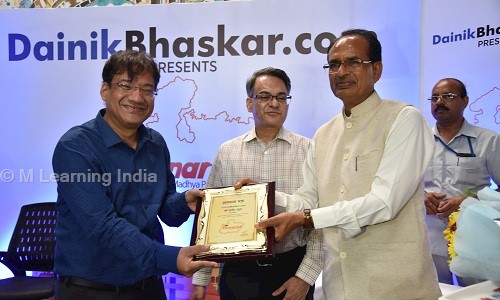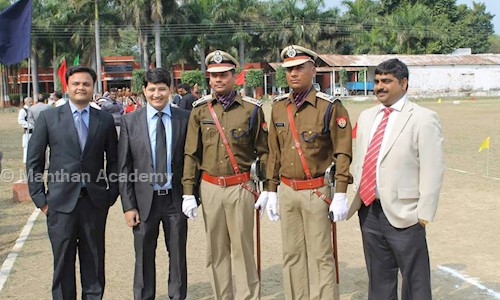 National Talent Search Exam (NTSE) Coaching Services Nearby
National Talent Search Exam (NTSE) Coaching Services Nearby
NTSE Coaching Centres in Lucknow as on Oct 18, 2025
physics home tutor | i.i.t home tutor | n.e.e.t home tutor
Physics Online Tutor, located in the serene area of DLF Farms, Delhi, offers comprehensive coaching for entrance exams with a focus on physics. Our courses are meticulously designed to cater to the diverse needs of students aiming for top engineering and medical colleges. Delivered through an interactive online platform, our classes ensure flexibility and convenience, allowing students to learn from the comfort of their homes. Our team of experienced instructors, boasting advanced degrees and years of teaching experience, are dedicated to providing personalized attention and fostering a deep understanding of complex concepts. Students benefit from robust support services, including one-on-one mentoring and access to a wealth of resources. For those aspiring to study abroad, our curriculum also includes preparatory modules for international entrance exams. We offer competitive pricing with various financial aid options to make quality education accessible. Ready to take the next step in your academic journey? Enroll today and unlock your potential with Physics Online Tutor. Our streamlined enrollment process ensures a hassle-free start, so you can focus on what truly matters—your education and future success.
- Online
- ENGG / ARCH entrance exam coaching
- Phone us to discuss fees.
Simran Shri Shri International Private Limited
At Simran Shri Shri International Private Limited, we prioritize student success through a diverse range of course offerings tailored to meet the needs of every learner. Our competitive exam coaching spans from Abacus & mental arithmetic tuitions to GATE coaching, ensuring a comprehensive educational experience. Our esteemed faculty comprises seasoned experts dedicated to fostering academic excellence through innovative teaching methodologies. Our modern facilities and resources provide an ideal learning environment, equipped with the latest educational technologies. We take pride in our students' success stories, reflecting our unwavering commitment to quality education. Whether it's Class I to V tuitions or specialized SSC exam coaching, our programs are designed to empower students with the knowledge and skills needed for their academic journeys. Join us now to benefit from our career support and opportunities, bolstered by a vibrant community and collaborative spirit. Contact us for more information and discover how we can help you achieve your educational goals. Testimonials and reviews from our satisfied students and parents further underscore our reputation for excellence. For any frequently asked questions, feel free to reach out and start your journey with us today.
- Yes
- Online and Offline
- please call for more details
- Abacus & mental arithmetic
- Class I to V
- Class VI to VIII
- Class IX to X
- Class XI to XII
- GATE
- School competitive exams
- SSC exams
- Vedic maths
- Computer science
- Science
TAKSHILA ACADEMY PRIVATE LIMITED
At TAKSHILA ACADEMY PRIVATE LIMITED, our distinguished faculty and experts are dedicated to delivering unparalleled coaching for competitive exams, ensuring each student achieves their academic goals. Located in Rohini, Delhi, we offer comprehensive courses ranging from Class IX to X tuitions, to specialized coaching for ENGG / ARCH and medical entrance exams. Our innovative teaching methodology, coupled with modern facilities and cutting-edge resources, guarantees an engaging and effective learning experience. We take pride in our student success stories, which reflect our commitment to excellence. Additionally, our academy provides robust career support and opportunities, guiding students through every step of their educational journey. Community and collaboration are at the heart of our ethos, fostering an environment where students thrive together. For those interested, we offer demo classes to showcase our exceptional teaching standards. Enrollment is now open, and we invite you to join us today to embark on a transformative educational journey. To learn more about our fees structure, please call for more details. Hear from our students and parents through testimonials and reviews, and find answers to common queries in our frequently asked questions section.
- Yes
- Online and Offline
- Please call for more details
- Class IX to X tuitions
- ENGG / ARCH entrance exam coaching
- Medical entrance exam coaching
- School competitive exam coaching
M Learning India
M Learning India, located in Indore H O, Indore, is renowned for its comprehensive and cutting-edge coaching programs tailored for students from Class IX to XII. Boasting a team of highly experienced faculty and experts, our institution ensures personalized attention and innovative teaching methodologies that foster academic excellence. Our diverse course offerings include tuitions for Class IX to X, Class XI to XII, along with specialized coaching for engineering (ENGG) and architecture (ARCH) entrance exams, medical entrance exams, and school competitive exams. We are proud of our modern facilities and resources, designed to create an optimal learning environment. Our success stories are a testament to the dedication and hard work of our students and faculty. M Learning India is committed to providing robust career support and opportunities, helping students navigate their future paths with confidence. Community and collaboration are at the heart of our institution, encouraging peer learning and growth. For enrollment information, please reach out to us and start your educational journey with us today. Don't just take our word for it; read our testimonials and reviews to hear from our satisfied students and their parents. For more details on our courses and fees, please call us. Frequently asked questions can also be addressed through our support team.
- Both online and offline
- please call for more details
- Mathematics
- Physics
- Chemistry
- Biology
- English
MyOwnGURUonline Learning Services
At MyOwnGURUonline Learning Services, situated in Ernakulam, Cochin, our exceptional faculty members are the cornerstone of our success, bringing a wealth of knowledge and experience to every class. We offer comprehensive coaching for students in Class IX to X, with a particular focus on school competitive exams. Our unique teaching methodology blends traditional and innovative techniques, ensuring each student grasps complex concepts with ease. Our state-of-the-art facilities and resources provide an optimal learning environment that fosters growth and achievement. With numerous student success stories, we pride ourselves on transforming aspirations into reality. We offer extensive career support and opportunities, guiding students through their academic and professional journeys. Our community-driven approach encourages collaboration among students, creating a supportive network. For enrollment information, call us today. Don’t just take our word for it – read our testimonials and reviews from satisfied students and parents. Have questions? Check out our frequently asked questions section. Start your journey with us now!
- Online
- Please call for more details
- Mathematics
- Science
- English
- Social Studies
Motion Lucknow
At Motion Lucknow, our commitment to nurturing academic excellence is evident through our comprehensive range of course offerings. We provide specialized coaching for competitive exams along with online school tuitions for students from Class I to XII. Our distinguished faculty, comprising seasoned educators and industry experts, ensures that each student receives personalized attention and guidance. We are proud of our modern facilities and cutting-edge resources that create an optimal learning environment. Success stories from our students, who have excelled in their respective fields, are a testament to our effective teaching methodology. We offer dedicated support for ENGG / ARCH and medical entrance exams, ensuring that students are well-prepared for their future careers. Community and collaboration are core values at Motion Lucknow, fostering a supportive and engaging learning community. Whether you seek school competitive exam coaching or subject-specific tuitions, we have you covered. Enroll today and take the first step towards a brighter future. Contact us for more information or to hear testimonials and reviews from our successful alumni.
- Online
- please call for more details
- Competitive exam coaching
- Online school tuitions
- Class I to V tuitions
- Class IX to X tuitions
- Class VI to VIII tuitions
- Class XI to XII tuitions
- ENGG / ARCH entrance exam coaching
- Medical entrance exam coaching
- School competitive exam coaching
Manthan Academy
Manthan Academy in Gomti Nagar, Lucknow, specializes in coaching for competitive exams such as the CAT, MAT, and other management entrance tests. The academy provides a holistic educational experience with a focus on quantitative aptitude, verbal ability, and logical reasoning. Manthan’s faculty members are experienced educators who use innovative teaching methodologies to ensure comprehensive understanding and application of concepts. The academy offers a conducive learning environment with small class sizes and personalized attention to foster student success. Regular mock tests, group discussions, and personal interview training are integral parts of the curriculum, equipping students with the skills needed to excel in competitive exams. Manthan Academy also offers career counseling and mentoring to help students navigate their future educational and career paths effectively.
- Offline
- Online
- Please call for more details
- Vivek Khand 4
Basic First Learning
At Basic First Learning, we pride ourselves on our exceptional faculty, comprised of seasoned educators and industry experts dedicated to nurturing young minds. Located in Ashok Nagar, Ranchi, we offer an extensive range of courses including Class IX to X tuitions, Class VI to VIII tuitions, Class XI to XII tuitions, common entrance exam coaching, ENGG/ARCH entrance exam coaching, medical entrance exam coaching, and school competitive exam coaching. Our comprehensive teaching methodology combines traditional teaching with innovative techniques to ensure deep understanding and retention. Our modern facilities, equipped with cutting-edge resources, provide an optimal learning environment, fostering academic excellence and personal growth. Numerous student success stories are a testament to our commitment to quality education and career support, guiding students towards their goals. Enrollment information is readily available, with demo classes offered to help prospective students experience our unique approach. Join us now to embark on a successful academic journey. Testimonials from satisfied students and parents, as well as a detailed FAQ section, are available to address any queries you may have.
- Yes
- Both online and offline
- Please call for more details
- Mathematics
- Science
- English
- Social Studies
- and specialized coaching for entrance exams
Nobel Academy
NOBEL ACADEMY in Kapoorthala, Lucknow, specializes in preparing candidates for various government exams, including SSC, UPSC, and state public service commissions. Known for its systematic and comprehensive approach, the academy offers in-depth courses that cover all aspects of the exams, from general studies to specific subjects like economics and law. Experienced faculty members, who are experts in their fields, provide insightful lectures and guide students through the nuances of exam patterns and question-solving techniques. The academy also focuses on enhancing students' problem-solving abilities and time management skills through regular practice sessions and mock tests. NOBEL ACADEMY is equipped with modern facilities, including a well-stocked library and digital resources, to aid students in their preparation. Additionally, the academy conducts workshops on interview skills and personality development, ensuring that candidates are well-prepared for all stages of competitive exams.
- Offline
- Please call for more details
- Reliance Digital
Brainfra Edutech P Ltd
Brainfra Edutech P Ltd is a premier institution dedicated to providing top-notch coaching for a variety of competitive exams, including SSC, NDA, IAS, IPS, UPSC, UGC NET, RRB, Teachers Exam, and School Competitive Exams. Our diverse course offerings are meticulously designed to cater to the unique needs of each aspirant, ensuring comprehensive preparation. With a blend of online and offline classes, we offer flexible learning modes to accommodate different schedules and learning preferences. Our team of seasoned instructors brings a wealth of experience and expertise, guiding students with personalized attention and strategic insights. At Brainfra Edutech, we prioritize student support, offering mentorship programs and regular feedback sessions to enhance learning outcomes. Enroll today to take advantage of our competitive fee structure, which ensures affordability without compromising on quality. Our coaching programs are not just about passing exams but also about opening doors to promising career opportunities in government and public sectors. Whether you're just starting or looking to advance your career, Brainfra Edutech is your partner in success. Join us now and embark on a transformative educational journey that paves the way for a bright future.
- Classroom
- Online
- Agricultural Engineering
- Agriculture
- Animal Husbandry and Veterinary Science
- Anthropology
- AP DSC (TRT and TETcumTRT)
- We're here to answer your questions – call us now!











